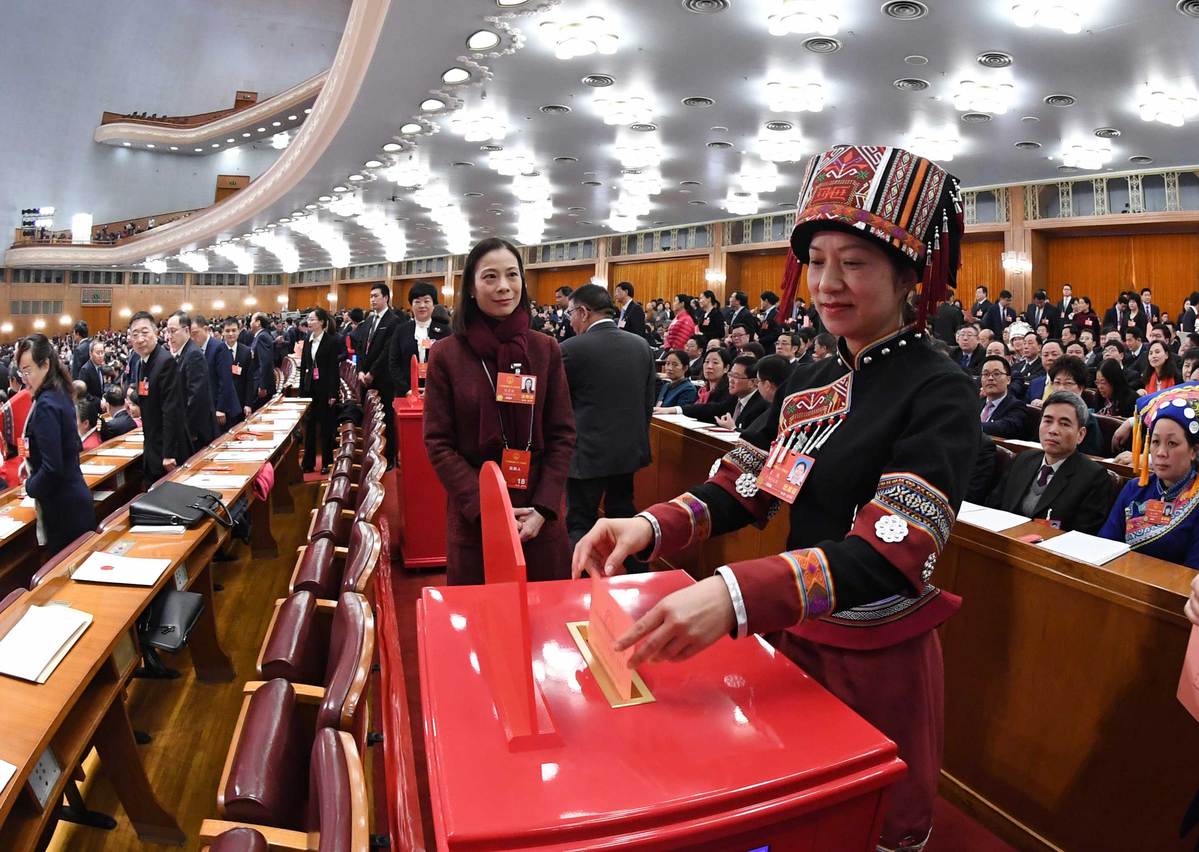China's national legislature adopts constitutional amendment


From 1988 to 1999, amendments included reform of land-use rights, a legal status for the private economy, the theory of building socialism with Chinese characteristics, replacing the phrase "planned economy" with "socialist market economy," and incorporation of Deng Xiaoping Theory.
The most recent amendment in 2004 protected private property and human rights and gave the Theory of Three Represents constitutional authority.
China's Constitution has been developed along with the people's practices of building socialism with Chinese characteristics under the CPC leadership, according to Li Shuzhong, vice president of the China University of Political Science and Law.
"The amendment makes the Constitution in keeping with the times by incorporating new achievements, experiences and requirements of the Party and the country's development as socialism with Chinese characteristics has entered a new era," Li said.
A constitutional change is either proposed by the NPC Standing Committee or by more than one-fifth of all NPC deputies, and then requires the approval of two-thirds or more of NPC deputies during the annual session.
- Relief efforts underway in flood-hit county
- Summer months transform Tianjin's Qilihai Wetland into an ecological showcase
- Linyi meets RCEP: Connecting regional markets, sharing global goods
- Students from both sides of Taiwan Strait compete in a friendly dragon boat race
- China activates emergency response to flooding in 3 provincial-level regions
- China strengthens animal-attack regulations with updated law






































